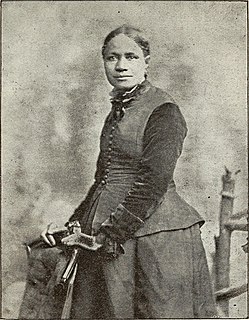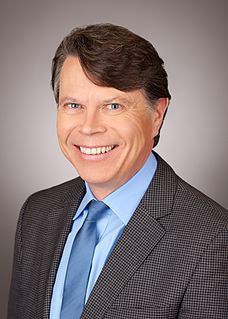A Quote by Alexander Hamilton
The administration of private justice between the citizens of the same state, the supervision of agriculture and of other concerns of a similar nature, all those things in short which are proper to be provided for by local legislation, can never be desirable cares of a general jurisdiction . . . the attempt to exercise these powers would be as troublesome as it would be nugatory; and the possession of them, for that reason, would contribute nothing to the dignity, to the importance, or to the splendour of the national government.
Quote Topics
Administration
Agriculture
Attempt
Between
Cares
Citizens
Concerns
Contribute
Desirable
Dignity
Exercise
General
Government
Importance
Jurisdiction
Justice
Legislation
Local
National
Nature
Never
Nothing
Other
Possession
Powers
Private
Proper
Provided
Reason
Same
Short
Similar
Splendour
State
Supervision
Them
Things
Those
Troublesome
Which
Would
Would Be
Related Quotes
To refer the power in question to the clause "to provide for the common defense and general welfare" would be contrary to the established and consistent rules of interpretation, as rendering the special and careful enumeration of powers which follow the clause nugatory and improper. Such a view of the Constitution would have the effect of giving to Congress a general power of legislation instead of the defined and limited one hitherto understood to belong to them, the terms "common defense and general welfare" embracing every object and act within the purview of a legislative trust.
This bill would renounce the safe, proper, and acceptable role for Government as a referee of disputes between the governed. It would interpose the Government as a biased protagonist, armed with the awesome authority of the Federal Government, in addition to rulemaking and umpire powers. The broad grants of power to the Attorney General to initiate and intervene in civil actions would go far toward transforming him into George Orwell's 'Big Brother' of '1984,' in the year 1964.
A government which can protect and defend its citizens from wrong and outrage and does not is vicious. A government which would do it and cannot is weak; and where human life is insecure through either weakness or viciousness in the administration of law, there must be a lack of justice and where this is wanting, nothing can make up the deficiency.
For those who fancy that government's projects are uniquely important, or for those who imagine that holding government office makes someone unusually saintly or trustworthy, entrusting government with power that we would never entrust to our neighbors or other private citizens might seem sensible. To me, it's dangerous, unjustified, and unjustifiable.
The natural aristocracy I consider as the most precious gift of nature for the instruction, the trusts, and government of society. And indeed it would have been inconsistent in creation to have formed man for the social state, and not to have provided virtue and wisdom enough to manage the concerns of the society. May we not even say that that form of government is the best which provides the most - for a pure selection of these natural aristoi into the offices of government?
An enlightened citizenry is indispensable for the proper functioning of a republic. Self-government is not possible unless the citizens are educated sufficiently to enable them to exercise oversight. It is therefore imperative that the nation see to it that a suitable education be provided for all its citizens.
The Constitution contains no 'dignity' Clause, and even if it did, the government would be incapable of bestowing dignity. ... Slaves did not lose their dignity (any more than they lost their humanity) because the government allowed them to be enslaved. Those held in internment camps did not lose their dignity because the government confined them. And those denied governmental benefits certainly do not lose their dignity because the government denies them those benefits.
As proof of this statement, consider this question: Have the people ever been known to rise against the Court of Appeals, or mob a Justice of the Peace, in order to get higher wages, free credit, tools of production, favorable tariffs, or government-created jobs? Everyone knows perfectly well that such matters are not within the jurisdiction of the Court of Appeals or a Justice of the Peace. And if government were limited to its proper functions, everyone would soon learn that these matters are not within the jurisdiction of the law itself.
It is on balance desirable to encourage Universal Jurisdiction, and to create pressure from below to make application of such jurisdiction as consistent as possible. I think this will act as a deterrent in some situations, although this impact will never be acknowledged by those affected as it would only embolden civil society to intensify its pressures.
The very reason why we object to state ownership, that it puts a stop to individual initiative and to the healthy development of personal responsibility, is the reason why we object to an unsupervised, unchecked monopolistic control in private hands. We urge control and supervision by the nation as an antidote to the movement for state socialism. Those who advocate total lack of regulation, those who advocate lawlessness in the business world, themselves give the strongest impulse to what I believe would be the deadening movement toward unadulterated state socialism.
Education is here placed among the articles of public care, not that it would be proposed to take its ordinary branches out of the hands of private enterprise, which manages so much better all the concerns to which it is equal, but a public institution can alone supply those sciences which, though rarely called for, are yet necessary to complete the circle, all the parts of which contribute to the improvement of the country, and some of them to its preservation.
I had come to realize the importance of the Nation, and of shared, communal, social responsibility, to be held as equally important as individual concerns. The elderly, the widowed, newly married couples, the poor, the unemployed, disbanded soldiers and children, who would be required to attend school, must be provided for from state funds. And all this support is not the nature of charity, but of a right.
The founders understood that democracy would inevitably evolve into a system of legalized plunder unless the plundered were given numerous escape routes and constitutional protections such as the separation of powers, the Bill of Rights, election of senators by state legislators, the electoral college, no income taxation, most governmental functions performed at the state and local levels, and myriad other constitutional limitations on the powers of the central government.
I do verily believe that if the principle were to prevail of a common law being in force in the United States (which principle possesses the general government at once of all the powers of the state governments, and reduces us to a single consolidated government), it would become the most corrupt government on the earth.






























